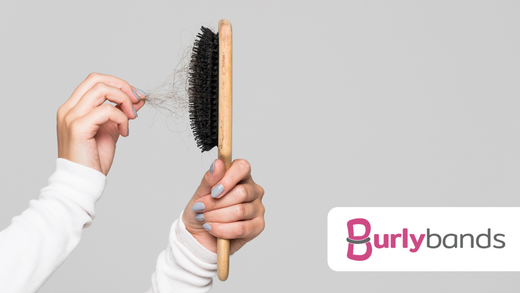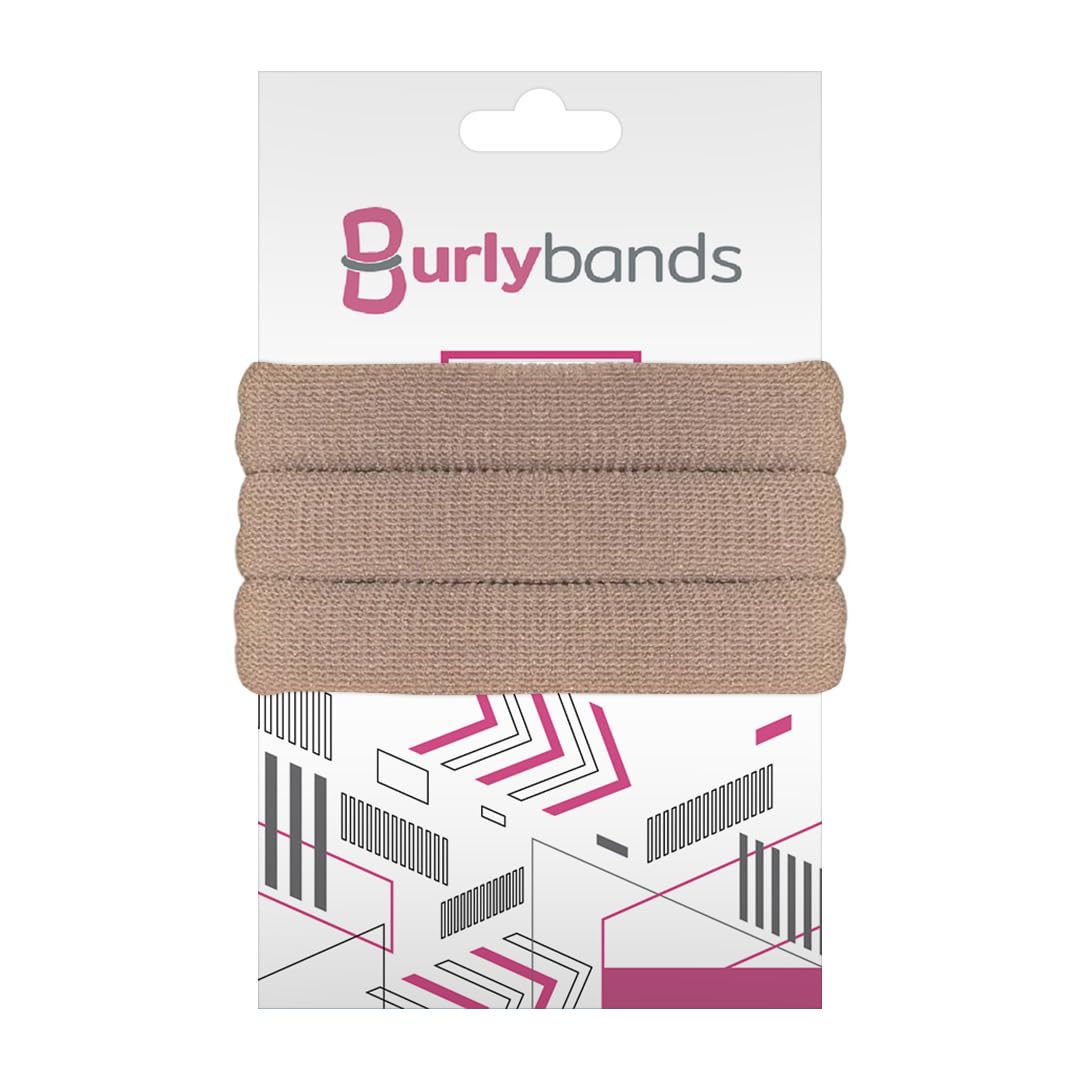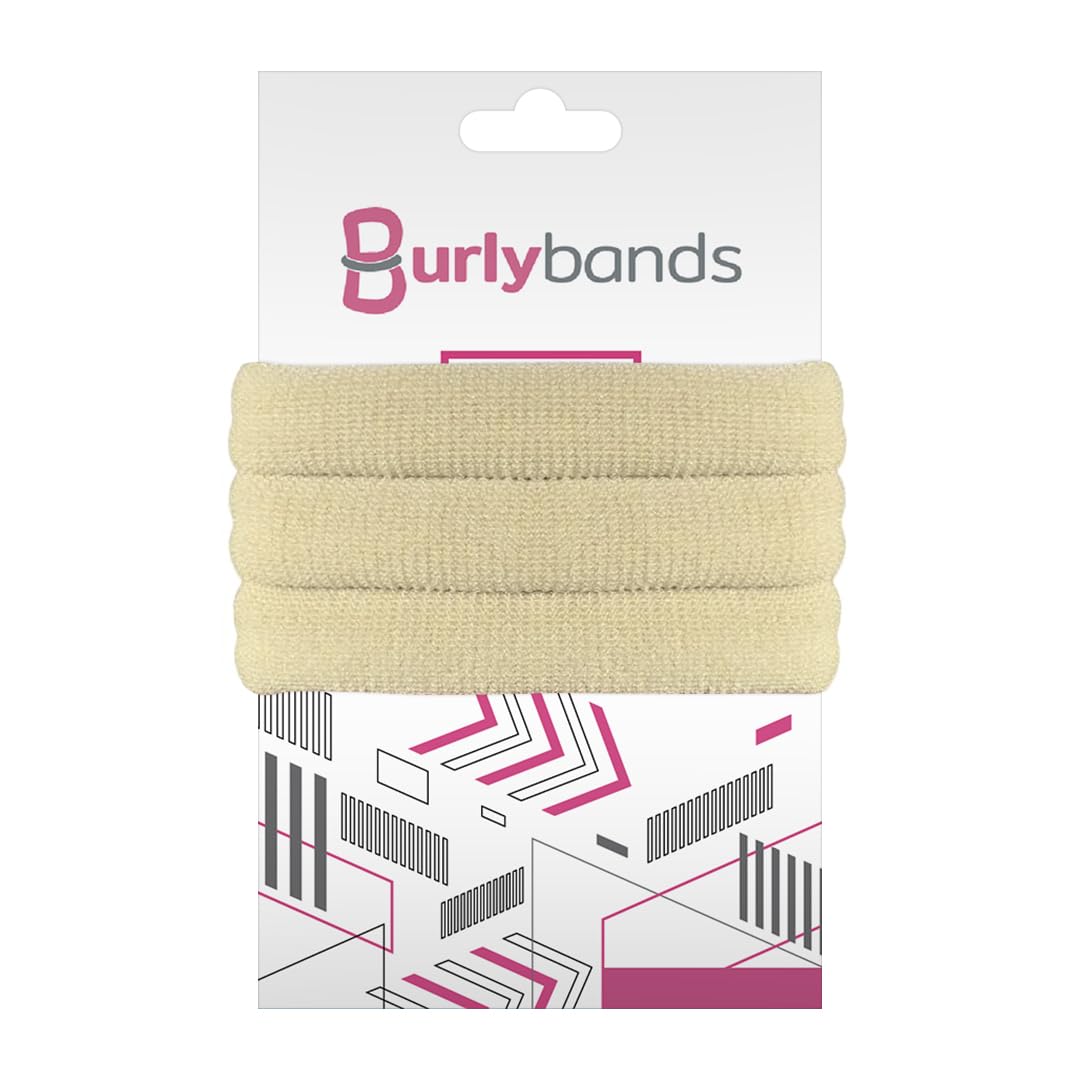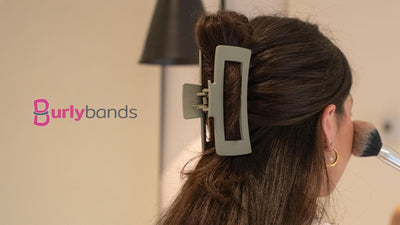Hair fall can be incredibly depressing for some of us, especially when we're combing or washing our hair and see clumps of hair in our combs or down the sink. It feels like you're going to go bald in the blink of an eye.
Hair loss is common. On average, humans have 100,000 hairs on their heads, and they lose 50 to 100 hairs per day naturally. It varies in intensity from person to person, and it may be more noticeable in individuals with long hair.
We understand how distressing it is to lose your hair, so we've put together an article that covers all you need to know about hair loss and how to prevent it.
What is Hair Fall?

Credit: Envato Elements/ Prostock-studio
The thinning of hair on the scalp is known as hair loss or hair fall. It is also called alopecia. Alopecia is a condition that can be either temporary or permanent. Hair loss is the loss of hair on one's head or body. For the purpose of this blog, we will talk about hair loss on the head. Hair loss can range in intensity. In most cases, there is no visible scarring or scarring at all. Hair loss can be in psychological distress as a result of extreme hair loss.
Causes of Hair Loss

Credit: Envato Elements/ Paulynn072
Female pattern hair loss and male pattern baldness are due to the following reasons:
1) Genetic Hair Loss or Hair Loss That Has Been Passed Through the Generations
This type of hair loss affects both men and women and is the most frequent cause of hair loss worldwide. Male pattern hair loss is a term used to describe hair loss in men. Female pattern baldness is a female-specific disorder. Androgenic alopecia is the medical name for hair loss that occurs in both men and women.
The first sign of hereditary hair loss in women is usually thinning hair.
The first sign of inherited hair loss is usually a receding hairline or bald area on the top of a man's head.
2) Age
Because hair growth decreases as people age, hair loss is typical. Hair follicles gradually stop generating hair, resulting in thinning of the hair on our scalp. The color of your hair starts to fade as well.
3) Alopecia Areata
Alopecia areata is a condition in which the immune system assaults the hair follicles (which hold the hair in place) and causes hair loss. Hair loss can occur anywhere on the body. Some people may even lose eyebrows or eyelashes.
4) Childbirth, Illness, or Other Adversities Are All Sources of Stress
You may notice a lot more hair in your brush or on your pillow a few months after giving birth, recovering from a sickness, or having an operation. This might also happen as a result of a stressful occurrence in your life.
5) Hair Treatments
You may be damaging your hair if you dye, perm, or relax it. Hair loss might occur as a result of this damage over time.
6) Hairstyles That Pull on Your Scalp
Hair loss might be irreparable if you pull your hair back too tightly all the time. This is commonly called traction alopecia.
7) Unbalanced Hormones
Polycystic ovarian syndrome is a common source of this imbalance (PCOS). Cysts develop on a woman's ovaries, as well as other indications and symptoms like hair loss. Some forms of birth control tablets can produce hormonal changes if you stop taking them. Medical treatments are available to treat PCOS, so make sure to consult your doctor.
8) Scalp Infections
Scaly and often inflammatory spots on your scalp might be caused by a scalp infection. On your scalp, you may notice what appear to be little black dots. These are actually hair stubs. A bald spot might grow in some people.
9) Medication
Hair loss is a possible side effect of various drugs. This can cause sudden hair loss. If you suspect a medicine is causing your hair loss, check with the doctor who provided it to see if hair loss is a side effect. It's critical that you don't stop taking your prescription without first consulting your doctor. Stopping some medications suddenly can result in serious health problems.
10) Psoriasis of the Scalp
Many persons with plaque psoriasis eventually develop psoriasis on their scalp. Hair loss may result as a result of this.
11) Trichotillomania (Hair Pulling Disorder)
For certain people, yanking their hair is a common stress reliever. They could be utterly unaware that they are pulling their hair out. Trichotillomania is the medical word for this type of hair loss.
12) Alopecia Scarring
Inflammation kills hair follicles, resulting in this disorder. When a hair follicle is destroyed, it can no longer generate new hair.
How to Prevent Hair Fall

Credit: Envato Elements/ sweet_elenia
There is no method to avoid hair loss caused by disease, aging, hereditary factors, or physical stressors such as trauma. Hair loss can be avoided by avoiding caustic chemicals and tight hairstyles. By examining the following suggestions that we've assembled in this post, you may be able to avoid some hair loss.
1) Vitamin A
Retinoids, which are a component of vitamin A, have been found to speed up hair growth. This vitamin may also aid in the creation of sebum, keeping the scalp healthy and allowing for the retention of more hairs. Nutritional deficiencies are one of the main reasons that cause temporary hair loss. So make sure you have a healthy diet if you want to keep your hair healthy.
Include foods high in vitamin A on your plate, such as eggs, oily fish, and spinach, to mention a few.
2) Seeds and Nuts
Vitamin E and omega-3 fatty acids are vital minerals for preventing hair loss. Walnuts, almonds, flax seeds, and chia seeds are some of the healthiest foods to eat if you're worried about hair loss. Not only can they contribute to a healthy diet, but they also contribute to healthy hair.
Zinc and selenium are crucial trace elements that your body cannot produce on its own, thus they must be obtained through foods such as nuts and seeds. These trace elements are necessary for hair growth, and a deficiency may result in hair loss.
3) Fruits
Berries, grapes, oranges, and other fruits are high in components that are beneficial to hair health, such as vitamin C and antioxidants.
Antioxidants, such as vitamin C, are abundant in these fruits and can protect hair follicles from damage. Vitamin C also aids in the absorption of iron and the production of collagen, which is one of the proteins that will promote hair growth and the prevention of hair loss. In order to boost hair growth, you need to have a balanced diet.
4) Protein
A deficit of protein in the diet has been linked to loss of hair. Because biotin is needed to make keratin, a hair protein, biotin pills are widely sold as hair growth supplements. If you've recently increased your protein intake and are experiencing hair loss, consult with your doctor, who may conduct blood tests to rule out other health issues.
5) Shampoo
It's crucial to know your scalp type and use the right shampoo for it. Hair loss can be caused by over-washing hair which leads to a dry scalp.
Also, check to make sure you use a mild shampoo that doesn't contain chemicals like sulfate, paraben, or silicone, which can leave your hair brittle and prone to breaking.
6) Conditioner
A good conditioner may make a tremendous impact on the condition of your hair. It rejuvenates damaged hair while also keeping it silky smooth.
7) Oil Your Hair
Oiling nourishes the roots and increases blood circulation. Make sure to treat your hair with a scalp-friendly oil weekly. Cover it with a shower cap and wash it off with a gentle shampoo and conditioner after two hours. Conditioner helps to prevent knots, which can lead to breakage and hair loss. Oiling can stimulate hair growth. These standardized scalp massage results in making your hair stronger and leads to increased hair thickness.
How Do Doctors Diagnose Hair Loss?

Credit: Envato Elements/ micens
The tests used to identify hair loss might be simple or complex:
- Gently pulling on your hair to see how many strands fall out.
- Blood tests. Vitamin and mineral levels (such as vitamin D, iron, and more), as well as hormone levels, are checked.
- The scalp is examined using trichoscopy and a microscope.
- A scalp biopsy is a technique in which a tiny part of scalp skin is extracted and evaluated.
Suggestions for Maintaining a Healthy Head of Hair

1) Trims on a Regular Basis
The hair shaft is the most damaged, and a decent trim every six to eight weeks will help you fix your problems. This will avoid split ends.
2) Stress
Stress is a major contributor to a variety of health issues, including hair loss. Meditation and yoga, when practiced on a regular basis, can be effective stress relievers.
3) Take Cold Showers Instead of Hot Showers
As relaxing as hot showers are, they dehydrate strands and deplete the scalp's natural oils, resulting in dry hair that is more likely to break. Instead, use lukewarm water and the coldest temperature feasible to rinse your hair.
4) Avoid Combing Wet Hair
When wet, our strands are more delicate and prone to breaking. This will lead to further hair loss As a result, use a wide-toothed comb or allow them to air-dry before you can attempt to comb it.
5) Avoid Hairstyles That Are Too Tight
Pulling your hair tight from the roots with hair ties might cause damage, so it's best to prevent it. Avoid sleeping with tight braids. This is one of the main causes of female pattern hair loss. Even using hot tools regularly such as curling irons and hair straighteners can cause hair loss.
6) Hair Loss Treatment
You might want to consider having a hair loss treatment that is now provided by a lot of salons and doctors that help in hair regrowth and reduce excessive hair loss. You can also slow hair loss and hair shedding that may cause female pattern baldness and male pattern baldness by these treatments.
Summary
Hair loss can be mentally distressing, but you don't have to be concerned. This comprehensive guide to hair loss will explain why you could be losing hair and what you can do to avoid it.
If none of these suggestions help to prevent hair loss, talk to your doctor about finding a solution that works for you.
 Log in
Log in














